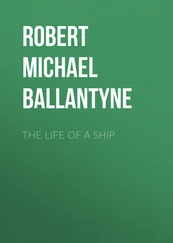Bad as this is, I am sorry to say it is but an every day occurrence at our wharfs, and while our government, on the principle of straining at gnats and swallowing camels, is ever ready to insist on ventilation of berths and limitations of passengers in Colonial crafts on short voyages, never scruples to tolerate Yankees, and others, and proffer facilities, when they are smart enough to secure the presence of our illustrious Governor and his sapient suite to Sunday dinners in their well provided cuddies, when of course it would display great want of taste to talk about, much less to examine, between deck berths or the miserable creatures who occupy them. What is the use of having Quarantine laws if they are not enforced and upon what principle do we for our own real or imaginary safety stop a vessel at the Heads for disease, without at the same time providing an hospital there for their cure as is done in every other civilized country—and why is this ship allowed to come and vomit her diseased and dying freight in the midst of an over-crowded city? Men despair of the Government ever doing anything effective in these matters, unless it is forced upon them by the voice of the people through our independent press.
Was there any truth to what this man reported having seen, or did he simply wish to re-stoke the smouldering fires of the Ticonderoga ’s infamy in the press? The ship had most certainly been cleaned, but her passengers had been forced to spend another three unplanned-for nights on board the ship, and were undoubtedly famished and at the end of their tether.
There is also some evidence to suggest that at least some passengers were still suffering from illness, but this was unlikely to have been typhus. Dr Sanger remained convinced that no typhus cases left the quarantine station—both he and Dr Veitch had rigorously inspected everyone before embarkation and found no evidence of the dread disease.
From Queen’s Wharf in Melbourne’s centre, the Ticonderoga ’s passengers, hot, exhausted and demoralised, made their way slowly up through the dusty streets of the city three blocks away to the Immigration Barracks and labour exchange at the corner of Spencer and Collins Streets. It was an austere building that was only two years old, but a vast improvement on the appalling 2000-strong tent city on the south side of the Yarra that had greeted all assisted immigrants up until 1848. The colonial government in no way wanted to encourage the notion of dependence on charity, and the Barracks, it was made clear, was only available for a short stay, despite the traumas undergone by its inmates.
Finally, the bedraggled survivors of the Ticonderoga lined up in front of the reception desks to become simply another intake of new arrivals from Britain, like thousands who had come before and even more who would follow, stating their name, occupation, religion and marital status. For this last category, many found themselves having to describe themselves, for the first time, as ‘widow’ or ‘widower’.
As the new arrivals shuffled in—some had managed, as reported by the ‘Observer’, to find a lift up from the wharf on bullock drays—they were watched with great interest by the man representing the Board in Victoria, Immigration Agent Edward Grimes. He was only too well aware of the sorry saga of the Ticonderoga , not least the damage it had done to his organisation’s reputation and the notion of assisted emigration generally. To his horror, he would discover a number of cases of what he believed to be typhus still prevailing among these new arrivals, and would start another round in the to-ing and fro-ing of recriminations and blame. In a furious letter to the Colonial Secretary, Lonsdale, he charged that Dr Hunt had been negligent in his duty by allowing several still-sick passengers to leave the quarantine station early, essentially backing up the opinions expressed by the ‘Observer’. Hunt would have none of it, and insisted that all those who had left Point Nepean were typhus-free, later noting that no further outbreak of typhus that could in any way be associated with the arriving passengers was reported.
Whatever their condition, most of those from the Ticonderoga would not have to reside long at the Barracks. The single women were the first to be snapped up. On a daily basis, representatives of the families of the wealthy, desperate for domestic labour, would scour the faces of the new arrivals and make the brightest looking girls a handsome offer—usually far in excess of what they could have expected at home—to be maids, cooks or nannies. So denuded of ordinary labourers had the gold rush made Melbourne that the men also could suddenly find themselves in positions paying as much as £70 a year with lodging for them and their families provided. This was a fortune compared with what they had earned at home.
By mid-February, however, Edward Grimes was obliged to put in a bill to the government for having to continue to provide for the upkeep of no less than 30 widows, orphans and other families who could not find a placement. Some, it seemed—at least for the time being—were unable to adjust to their new life after the terrible shock of the journey.
A few days after the appearance of the letter penned by the so-called ‘Observer’, Dr Sanger had his right of reply in The Argus :
Sir—
A garbled and false representation respecting the state of the ship Ticonderago [ sic ] having appeared in The Argus of Friday last written by a person who signs himself ‘Observer’. I beg you will allow me the space of a few lines to disabuse the public on that subject, more particularly as that statement unjustly reflects on the conduct of the Captain and Officers of the vessel. Those gentlemen having evinced the most hearty desire for the welfare of the emigrants throughout the whole of her disastrous voyage. So far from the generality of the people being in an emaciated condition, as ‘Observer’ seems to imply, the fact is, that out of nearly 600 only two were sent to the hospital; about a dozen were suffering more of less from diarrhoea or debility, none severely; the rest were in perfect health. The apparently unseemly haste with which the passengers were hurried over the side was caused by the impatience of the captain of the steamer, who would not wait a moment even to allow the husband of the mother of a seven-week’s infant to join his wife with the child. When the people were re-embarked from the Sanitary Station on the Monday previous, the ship was perfectly clean; but it having been necessary to take down the berths, and destroy them for the purpose of thoroughly purifying the vessel, the passengers were obliged for a few days they remained on board to lie on the decks, thus causing an untidy appearance, and a difficulty of attending minutely to cleanliness. As regards the Government officials, I can testify that the greatest pains were taken to thoroughly eradicate the disease before granting the ship pratique, and not a single case of infectious disease existed at the time the vessel left Point Nepean. I am, Sir, Your most obt. Servt., J.C. SANGER, M.D., Surgeon Superintendent ship Ticonderago [ sic ]
It was one of the last public words on the whole affair, as gradually the interest of the public moved on.
Joseph Sanger would recover from the trials of the Ticonderoga and, unperturbed by what he had been through, would continue to serve at sea under the Colonial Land and Emigration Commission for many years. No drama he would subsequently encounter, however, would ever eclipse that of the Ticonderoga . He was highly praised for his role, and his gratuity was increased from £200 to £250.
Читать дальше












